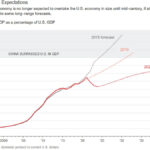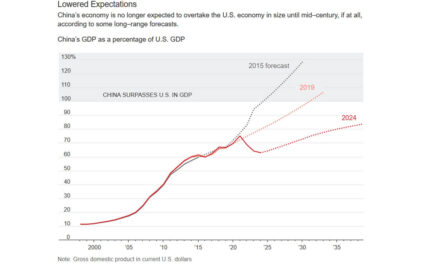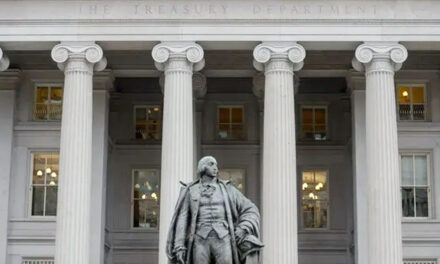
Dominoes fall as China Weakens Yuan and Suspends U.S. Ag Imports
If your job is being an economic or political correspondent following the tariffs and trade wars you are either blessed or cursed. Obviously, you have no shortage of verbiage to punch out each day in the he-said, she-said battle royal between China and the U.S. On the other hand, one must tire of the monotonous back and forth that has gone on forever. Whatever the case, it’s not going away anytime soon.
The morning scenario from the Far East was unwelcome news to the U.S stock market, ending the day down some 760 points, its worst closing day of the year. Unless you’re a farmer or a futures trader, you probably aren’t concerned, or probably don’t even know, the repercussions of China’s decision to suspend importing American agricultural products like wheat and soybeans, which are both down in trading today.
The news has become a two-for-one for President Trump. He can once again hammer home his objection to China devaluing the yuan. In foreign exchange trading today, the currency breached the key seven-per-dollar level for the first time in more than a decade. The backhand is a smack at the Fed, as Trump tweets, “Are you listening Federal Reserve.” I have written on the positives as well as the negatives of this currency maneuver, which honestly can be viewed ambivalently, as too many parts to the puzzle make it difficult to discern the longer term macro effect. However, we do know that the Chinese could have stepped in to support the yuan today, but chose not to.

Let’s look at the market reaction to today’s events. The dollar has gained 2.2 percent against the yuan since Trump’s pledge on Thursday to put a 10 percent tax on $300 billion of Chinese imports, the U.S. currency’s biggest move in almost four years. The MSCI Asia Pacific Index slid 2.1% on Monday, the biggest drop since October 2018. European shares also retreated, while the yield on 10-year U.S. Treasuries declined about 8 basis points to 1.77%, the lowest level since 2016. Those of you worrywarts who foamed at the thought of 3% yields can rest easy for a while. This systematic risk is what keeps investors up at night. It can be defined as risk inherent to the entire market or market segment. Systematic risk, also known as “undiversifiable risk,” “volatility” or “market risk,” affects the overall market, not just a particular stock or industry.

“It’s among the worst-case scenarios,” said Michael Every, head of Asia financial markets research at Rabobank in Hong Kong. “First markets sell off, then Trump wakes up and this all gets far, far worse.” Perhaps a far deeper event is occurring. The hawkish crowd that counsels Trump would like to see Chinese concessions on issues like state-run enterprises that could weaken the party’s grip on power. With the Maoist Chairman Xi still pulling the strings, it is unlikely this scenario will play out. China could be wise to sit this one out for the moment, with things taking care of themselves if a democrat were to unseat Trump.


























Hello
I’m retire just year an half ago. My pro-folio is diversified . But I retire at 59 1/2 I’m going to be 61 next month one more year before I get SS I been talking with my Financial Advisor what I feel I call it this year it was a matter of time before the Market heads South I feel the next year an half especially during election the market does not do good . Until they get this US and China straighten out and with the Feds the market is not going to do well. Ups and downs I don’t see a bright spot in the near future with the market.
I too stand to suffer from the market,but Have a little faith and sit tight.Trump is trying to level the playing field for us all,not just the few.